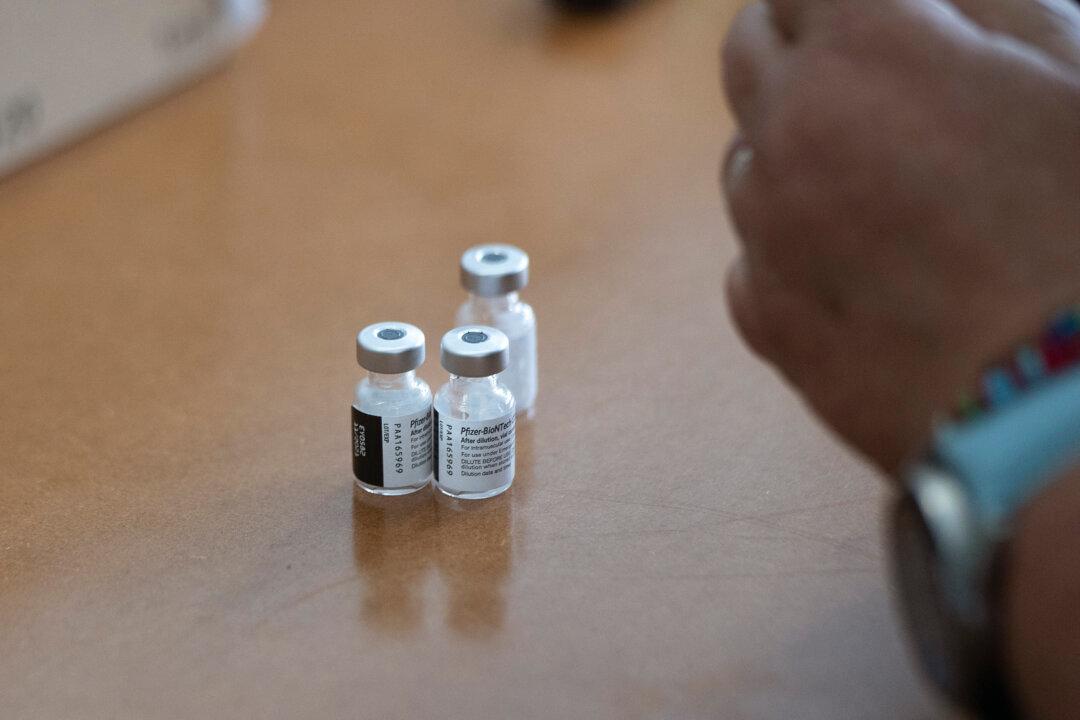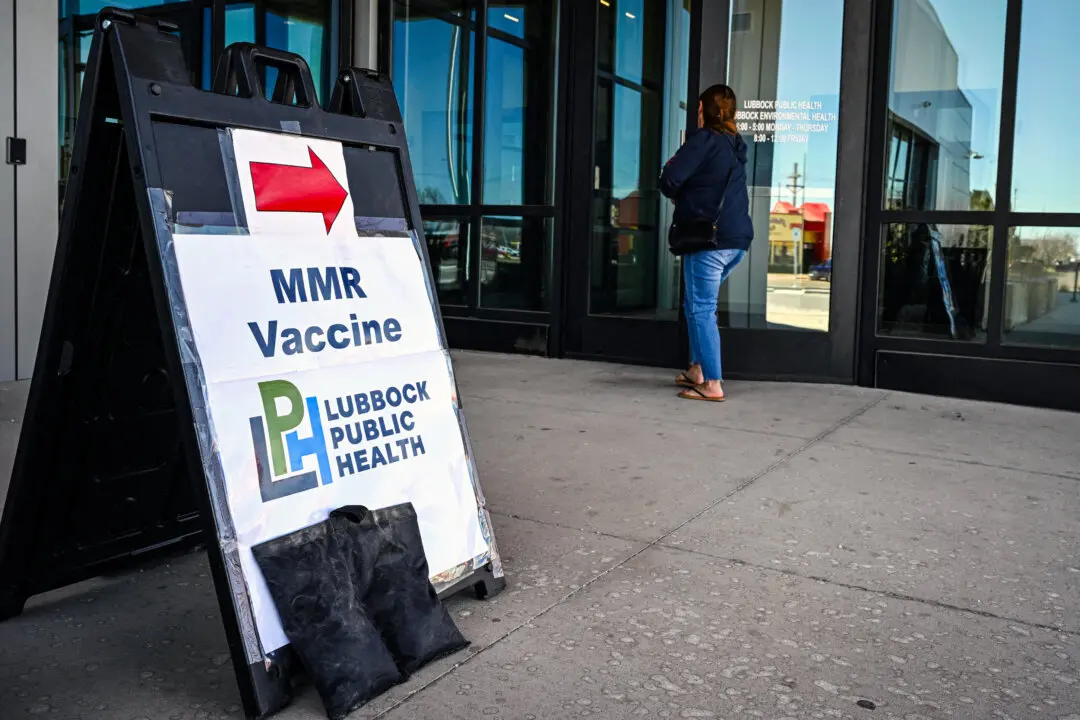The Pfizer-BioNTech COVID-19 vaccine has been less effective in protecting against hospitalization following the emergency of the Omicron virus variant, according to a new study of real-world data from South Africa.
The protection from the vaccine’s primary two-dose regimen has dropped to about 70 percent in recent weeks, according to Discovery Health, the largest private health insurance company in the country.





